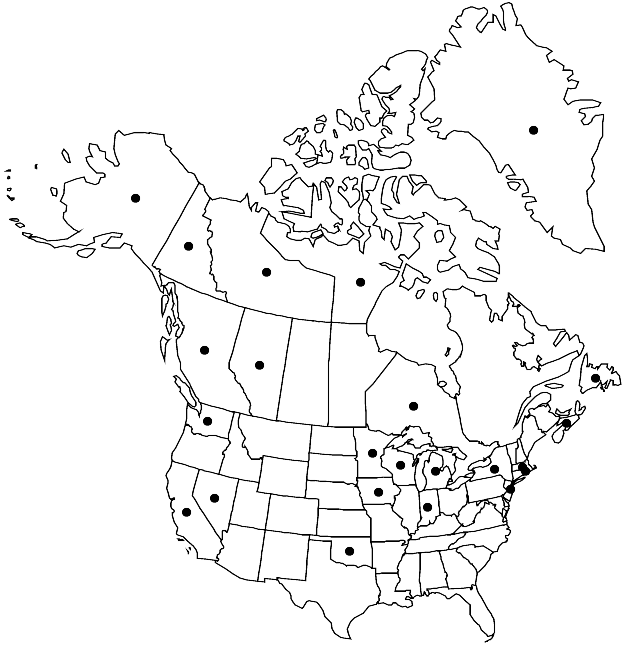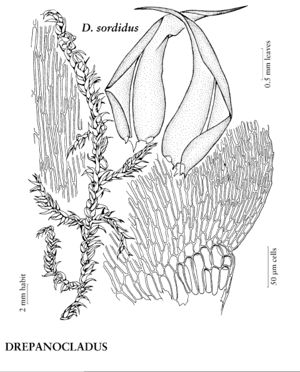Drepanocladus sordidus
Mem. New York Bot. Gard. 82: 217. 1998.
Plants medium-sized, sometimes small or large. Stems pinnate or irregularly pinnate. Stem-leaves strongly falcate-secund, rarely weakly so, ovate, broadly ovate, or triangular-ovate, gradually narrowed to apex, ± strongly concave, 1.4–5.2 × 0.4–1.4 mm; base erect or erectopatent, insertion slightly curved; margins entire or weakly and obtusely denticulate; apex acuminate, acumen gradually differentiated, mostly furrowed; costa single, ending beyond mid leaf, mostly in acumen but not excurrent; alar region quadrate or transversely short-triangular, reaching from margin 40–60% distance to costa; ratio of medial laminal cell length (µm) to leaf length (mm) 23.3–36.5. Sexual condition dioicous.
Habitat: Intermediately mineral-rich, meso- to eutrophic habitats, submerged in lakes, pools, ox-bow lakes, terrestrial wetland habitats, fens
Elevation: low to high elevations
Distribution

Greenland, Alta., B.C., Nfld. and Labr. (Nfld.), N.W.T., N.S., Nunavut, Ont., Yukon, Alaska, Calif., Ind., Iowa, Mass., Mich., Minn., Nev., N.J., N.Y., Okla., R.I., Wash., Wis., Mexico, Central America, South America, Eurasia
Discussion
Drepanocladus sordidus and 7. D. latinervis are recognized by their almost always strongly falcate leaves, relatively small alar groups, and relatively strong, non-excurrent costae; for differences between the two species, see the discussion of the latter.
Selected References
None.
Lower Taxa
"length" is not a number."narrower" is not a number.
